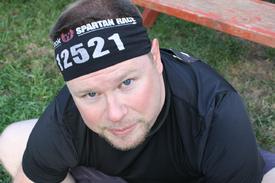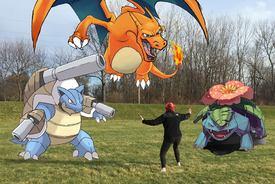Busy people. How do you control your sodium?

StrongAndHealthyMommy
Posts: 1,255 Member
Hello everyone!!
I'm a full time student and full time worker. And on top of that I don't cook because everytime I can I burned my hands or the food, so my husband doesn't let me touch the kitchen unless in going to use the microwave it do dishes.
Usually I workout and eat my proteins and vegetables and all that. But I've realized that my sodium is ridiculously high most of the time. Specially when I eat out(almost every single day)
Plus. Everyone recommends to eat the workout calories back. But if I eat my burned calories, my sodium is going to be waaaaaayyyyyy toooo high.
How do you guys do it???
I'm a full time student and full time worker. And on top of that I don't cook because everytime I can I burned my hands or the food, so my husband doesn't let me touch the kitchen unless in going to use the microwave it do dishes.
Usually I workout and eat my proteins and vegetables and all that. But I've realized that my sodium is ridiculously high most of the time. Specially when I eat out(almost every single day)
Plus. Everyone recommends to eat the workout calories back. But if I eat my burned calories, my sodium is going to be waaaaaayyyyyy toooo high.
How do you guys do it???
0
Replies
-
Don't unless you have a pre-existing heart condition.0
-
I don't. I just don't want to have problems in the future0
-
I don't. I just don't want to have problems in the future
It doesn't cause blood pressure problems. Read up and understand sodium, it is not bad for you.0 -
yup. barring a medical reason, you don't even need to track sodium. many of the most successful people on this sight don't.
if you are worried, balance sodium with potassium as close to a 1:1 ratio as you can. also, we flush excess sodium in the bathroom. so drink lots of water, make more trips, get rid of more sodium. work out. we get rid of some through sweat, also.0 -
Sodium (NA+) is actually needed for many biological reasons around the body. It has become a popular thing to hate, for no good reason.0
-
Have you had a check up to see if you have high blood pressure?
If you have normal blood pressure despite the higher sodium intake, then I would not worry too much. From the research I have seen, the sensitivity of blood pressure to sodium in the diet varies greatly within individuals. If your blood pressure is sensitive to salt intake, then you may not have much of a choice but to eat out less.0 -
Try eating more fresh fruits and veggies to offset the sodium in the package foods. Even frozen veggies. I have a pretty cool veggie steamer for the microwave that is easy to use and quick and you can cook fresh or frozen veggies in it. Also when you do eat out try choosing the "freshest" items, like salads, and get the dressing on the side or use oil and vinegar instead of the dressing which would also reduce sodium.
It might not be that important to track your sodium if you don't have any health issues but I still think reducing your sodium can't hurt, especially if you are currently eating mostly processed foods.
Also try to learn how to make one big homemade dish a week when you have some time. Maybe lentil or bean soup in the slow cooker with a ton of veggies and chicken breast if you eat meat. Then you will have a go to meal all week ready at home so you don't have to stop for fast food. I realize it's not easy to learn if you are super busy but I think it will help you in the long run. Just be careful not to use all high-sodium canned food in what you make at home! Plus you can make a huge batch and put some single servings in the freezer, too.0 -
Well last time I checked I'm healthy. But I was reading that people that eat 3500 and + of sodium have higher risks of high blood pressure stroke. Heart attacks. And all that. And my sodium is usually between 3500-5000
I guess I will keep reading a looking different researches and opinions0 -
Try eating more fresh fruits and veggies to offset the sodium in the package foods. Even frozen veggies. I have a pretty cool veggie steamer for the microwave that is easy to use and quick and you can cook fresh or frozen veggies in it. Also when you do eat out try choosing the "freshest" items, like salads, and get the dressing on the side or use oil and vinegar instead of the dressing which would also reduce sodium.
It might not be that important to track your sodium if you don't have any health issues but I still think reducing your sodium can't hurt, especially if you are currently eating mostly processed foods.
Also try to learn how to make one big homemade dish a week when you have some time. Maybe lentil or bean soup in the slow cooker with a ton of veggies and chicken breast if you eat meat. Then you will have a go to meal all week ready at home so you don't have to stop for fast food. I realize it's not easy to learn if you are super busy but I think it will help you in the long run. Just be careful not to use all high-sodium canned food in what you make at home! Plus you can make a huge batch and put some single servings in the freezer, too.
Thank you!0 -
Well last time I checked I'm healthy. But I was reading that people that eat 3500 and + of sodium have higher risks of high blood pressure stroke. Heart attacks. And all that. And my sodium is usually between 3500-5000
I guess I will keep reading a looking different researches and opinions
Too many variables.
Saying a blanket 3500mg is bad doesn't make sense.
If you are obese, have gunked up artries and raised BP, a small change could be significant.
For the rest of us, there is little or no risk.
Watch this and understand http://youtu.be/y1RXvBveht0?t=32m50s 0
http://youtu.be/y1RXvBveht0?t=32m50s 0 -
It's true in the overall population, but again, it's very dependent on the individual. Hence, I don't think it's good to put it sodium in the camp of "sodium is the boogeyman, cut it or omg you will die" or "sodium does not matter, eat all you want". Lowering your sodium can't hurt you though and does generally force you to eat better foods overallWell last time I checked I'm healthy. But I was reading that people that eat 3500 and + of sodium have higher risks of high blood pressure stroke. Heart attacks. And all that. And my sodium is usually between 3500-5000
I guess I will keep reading a looking different researches and opinions
I personally don't have problems with it and do eat quite a lot of sodium, but I'm sure to get an occasional check up because cardiovascular problems run in my family.0 -
The biggest issue that sodium causes (for healthier people) is that it can make you retain water and can cause you to feel more lethargic (or so my nutritionist/personal trainer has told me). I have an issue with sodium too (dang pre-packaged foods), and find that when I manage to keep my sodium levels down, I generally feel better (nothing I can quantify though). I wouldn't let it worry you too much.
Edit to note that when I say "healthier" people, I'm referring to people that don't have cardiovascular (etc.) issues that would cause them to need to really watch their sodium intake.0 -
Drink water. That's it.0
-
Thank you!!!!0
-
Well last time I checked I'm healthy. But I was reading that people that eat 3500 and + of sodium have higher risks of high blood pressure stroke. Heart attacks. And all that. And my sodium is usually between 3500-5000
I guess I will keep reading a looking different researches and opinions
Too many variables.
Saying a blanket 3500mg is bad doesn't make sense.
If you are obese, have gunked up artries and raised BP, a small change could be significant.
For the rest of us, there is little or no risk.
Watch this and understand http://youtu.be/y1RXvBveht0?t=32m50s
http://youtu.be/y1RXvBveht0?t=32m50s
awesome!!! thank you!!!0
This discussion has been closed.
Categories
- All Categories
- 1.4M Health, Wellness and Goals
- 397K Introduce Yourself
- 44.2K Getting Started
- 260.9K Health and Weight Loss
- 176.3K Food and Nutrition
- 47.6K Recipes
- 232.8K Fitness and Exercise
- 456 Sleep, Mindfulness and Overall Wellness
- 6.5K Goal: Maintaining Weight
- 8.7K Goal: Gaining Weight and Body Building
- 153.3K Motivation and Support
- 8.3K Challenges
- 1.3K Debate Club
- 96.5K Chit-Chat
- 2.6K Fun and Games
- 4.5K MyFitnessPal Information
- 16 News and Announcements
- 18 MyFitnessPal Academy
- 1.4K Feature Suggestions and Ideas
- 3.1K MyFitnessPal Tech Support Questions





